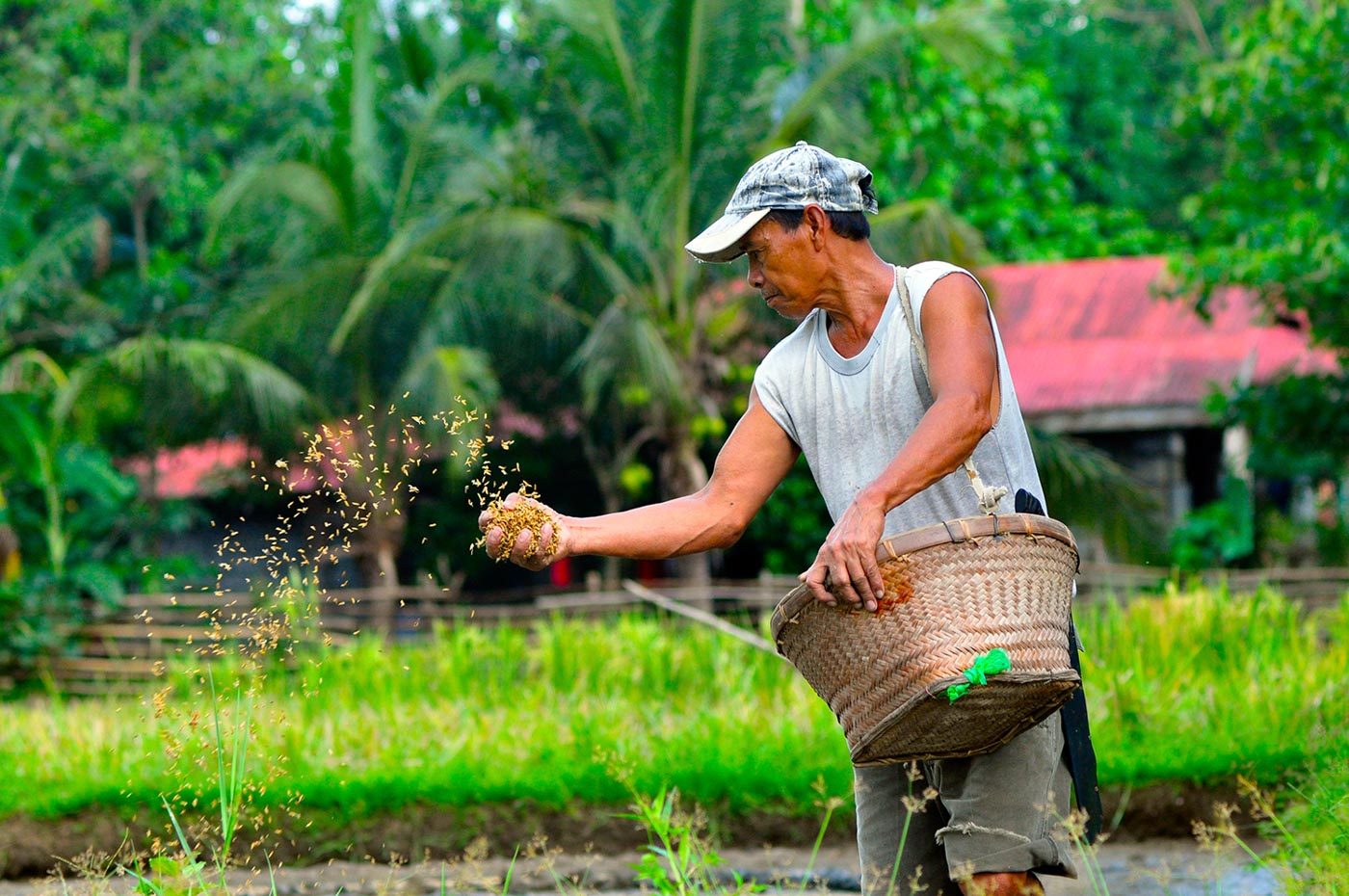SUMMARY
This is AI generated summarization, which may have errors. For context, always refer to the full article.

MANILA, Philippines – The Department of Agriculture is eyeing to also set up solar-powered irrigation systems (SPIS) to aid farms surrounding Laguna Lake.
In a Facebook post, Agriculture Secretary Emmanuel Piñol said during his visit to Lumban, Laguna that the DA will prioritize farmers in Laguna and Rizal as they have found the area to still be dependent on rainfall.
This is aside from the P100 million worth of credit that will be made available to the farmers as well.
“The brown rice fields [during summer] are tell-tale signs of areas which lack water, otherwise, the farmers would already be preparing the fields for another planting,” Piñol said in his post.
“Yet a few hundred meters away from their farms is a vast body of water and the only thing that is needed is a facility which would draw water and pump it up to the edges of the mountains surrounding the lake from where it would flow down and irrigate the fields,” he added.
This would save farmers who have to use diesel-powered water engines for irrigation at least P15,000.
“In fact, with the availability of ground water and water from the lake, rice farmers in the area could plant as much as 3 times a year,” Piñol said.
The DA had inaugurated and turned over Laguna’s first SPIS located at Barangay Wawa Ibayo in Lumban last Tuesday, February 19. This is the 7th solar irrigation project so far, initially covering 50 hectares.
This is amid the agency’s campaign to set up more SPIS after Israeli firm LR Group had proposed to partner local construction companies to build the DA’s SPIS projects. This covers around 6,200 units and 500,000 hectares of land for the next 3 years.
The rice industry stakeholders had been clamoring for more government support even before President Rodrigo Duterte had signed the rice tariffication law, which both farmers and businessmen said would put them at a disadvantage.
Aside from rice farmers, the DA is also eyeing to provide SPIS to corn farmers and sugarcane plantations.
The fate of non-irrigated lands
At the same time, the Department of Agrarian Reform (DAR) is also in the process of fast-tracking land conversion procedures upon President Rodrigo Duterte’s orders. (READ: Duterte steps out of Cabinet meeting after ‘outburst’ on land use conversion)
DAR Undersecretary for Legal Affairs Luis Meinrado Pañgulayan in a press conference last week had clarified that if a disposable and agricultural land is not well-irrigated, it can be converted for residential, commercial or industrial use.
Pañgulayan also heads the inter-agency task force formed to fast-track the processing of land conversion.
Land conversion can be approved also on the following bases: if the surrounding area of the piece of land is already developed; and if the land cannot be economically feasible for agricultural use or may be more valuable if used for other purposes.
However, Agrarian Reform Secretary John Castriciones, in a statement released on Wednesday, February 20, said that the process of land conversion should still be for the benefit of the farmer-beneficiaries.
“In pursuing this endeavor, it is foremost in our plans that each step is environmentally viable and socially feasible. It should also protect tillers’ rights and ensure food security,” he added.
A joint memorandum circular regarding the fast-tracking of land conversion processes will be submitted during the Cabinet meeting next month. The government is eyeing to shorten the process from at least two years to 30 days.
Pañgulayan, in the same statement, said that other government agencies that are part of the task force were asked to identify the bottlenecks in the procedures.
“We [the department] also asked them to simplify procedures, shorten the number of days for processing, and do away with redundant certifications,” he added.
The government agencies that also make up the task force are the Department of the Interior and Local Government, Department of Agriculture, Housing and Land Use Regulatory Board, National Housing Authority, and Housing and Urban Development Coordinating Council.
DAR also said that the Department of Energy has been included in case a converted agricultural land will be used for energy production. – Rappler.com
Add a comment
How does this make you feel?
There are no comments yet. Add your comment to start the conversation.